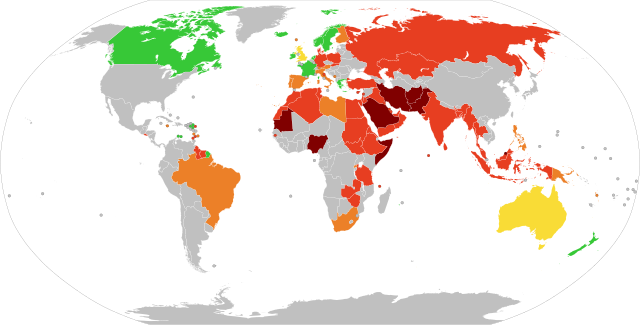I know it's bad form, but I didn't read the article, these things make me feel stupider. I am trying to use Roseanna and Amy as props to make a point, also bad form. Here's my proposition: can you imagine that a person exists who believes that Sharia law is a poor fit for the United States? I can picture Roseanna and Amy scrolling down to the "debates and controversies" section to see maps of blasphemy laws (Australia has "subnational restrictions"; Somalia has "death sentences") or apostacy or homosexual relationships and expression and getting concerned. More likely, someone put something more inflammatory than a map in their Facebook slow drip of outrage, but let's try to be charitable and imagine, somewhere, an objective person trying to learn. If you can imagine a person who is concerned about the idea of Sharia law in the United States, is it necessary that they be racist? Is it possible to be concerned about the laws and values, without having a negative opinion of the people who live in (or come from) places where those laws and values are common? If so, what would that person look like, how would they talk? Racism is such a powerful pejorative, as it should be, that true racists are likely to take cover behind "cultural conservatism" and claim that they're only in it for the values, not the hatred. When someone says "I'm not a racist, but..." I agree it doesn't sound convincing because no one wants to be smeared with the label. But what is the objective person supposed to say? Clearly they should focus their negative language on the laws and values they find concerning, and refrain from criticizing people. If someone speaks that way, I can't be sure of their true motivations, but I would want to explore their position on laws and values rather than focusing on the incendiary and speculative subject of motivation.

